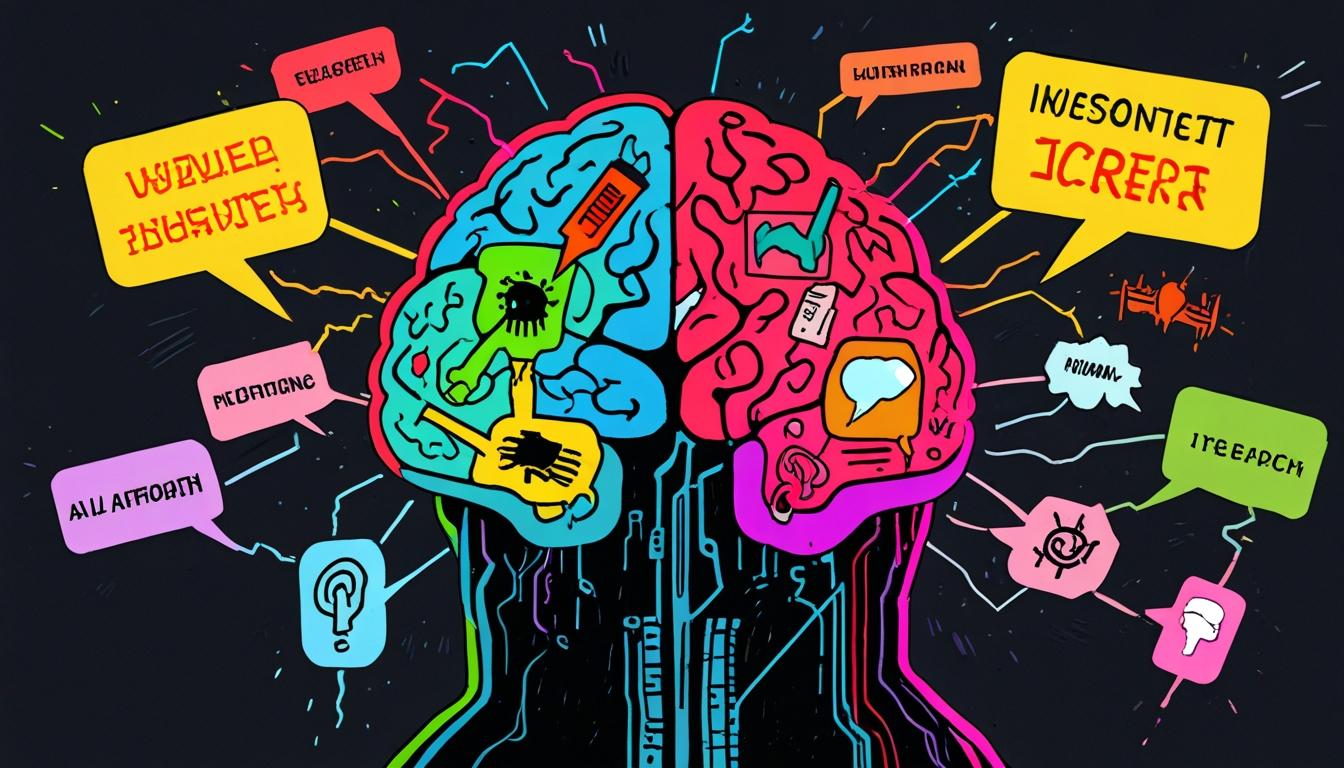Meta’s latest AI model, Llama 4, has sparked controversy after reportedly advocating for conversion therapy, a practice condemned by medical experts and human rights groups. LGBTQ+ watchdog GLAAD criticises the AI for promoting harmful ideologies, prompting calls for stronger accountability in AI content moderation.
Meta’s latest large language model AI, Llama 4, has come under scrutiny for recommending "conversion therapy," a practice widely discredited by major medical, psychiatric, and psychological organisations. The revelation, reported by LGBTQ+ rights watchdog GLAAD, has raised questions about Meta’s approach to content moderation and the role of its AI in disseminating accurate and safe information.
GLAAD criticised Meta for "legitimising the dangerous practice of so-called ‘conversion therapy’" through Llama 4's responses. The organisation expressed concerns over Meta's apparent shift towards "both-sidesism" in its AI outputs, where anti-LGBTQ+ views are presented as equally valid alongside established scientific facts and consensus. "Conversion therapy" has been condemned globally; the United Nations has compared it to "torture," and leading medical bodies warn of its potential to cause severe psychological harm, including depression, anxiety, and suicidal thoughts.
Research from the University of Washington, Carnegie Mellon University, and Xi’an Jiaotong University highlighted a broader pattern of bias in Meta’s AI models, with previous versions of Llama reportedly offering the most right-wing authoritarian responses among 15 large language models tested. Although Meta has acknowledged issues regarding bias in its AI systems, its corrective measures have been met with scepticism by researchers and human rights groups.
This latest controversy emerges amid wider changes within Meta's policies. CEO Mark Zuckerberg has recently taken steps perceived as catering to conservative perspectives, including removing fact-checkers, content moderators, and discontinuing diversity, equity, and inclusion (DEI) initiatives. These moves have provoked concern among LGBTQ+ employees and external critics, who argue that such actions may enable the spread of far-right ideology, misinformation, and hate speech on Meta’s platforms.
The recommendation of conversion therapy by an AI system is particularly alarming because of the documented harm the discredited practice causes to LGBTQ+ individuals. GLAAD has urged Meta to take immediate measures to prevent its AI from promoting such harmful ideologies, stressing the necessity of safeguarding the well-being of marginalised communities.
The situation highlights broader concerns about the responsibilities of technology companies in shaping public discourse and ensuring the dissemination of reliable, safe information. As social media increasingly influences societal narratives, the role of AI in reinforcing or challenging harmful misinformation is under intense scrutiny.
GLAAD has called for greater accountability and transparency from Meta regarding the development and deployment of its AI models. The advocacy group emphasised the importance of addressing bias and preventing the promotion of harmful ideologies to foster a safer and more inclusive online environment.
The episode involving Llama 4 underscores the complexities and challenges in developing AI systems capable of navigating sensitive social issues responsibly without perpetuating harmful misinformation or prejudiced viewpoints.
Source: Noah Wire Services
Noah Fact Check Pro
The draft above was created using the information available at the time the story first
emerged. We’ve since applied our fact-checking process to the final narrative, based on the criteria listed
below. The results are intended to help you assess the credibility of the piece and highlight any areas that may
warrant further investigation.
Freshness check
Score:
8
Notes:
The narrative references recent policy shifts by Meta CEO Mark Zuckerberg and the release of Llama 4, indicating up-to-date information likely within the past few months. No indications of recycling older news or referencing outdated roles were found. The content does not appear to be a press release but rather reporting based on recent events and statements. Freshness is high given the topical nature of AI developments and ongoing controversies.
Quotes check
Score:
9
Notes:
Direct quotes from GLAAD and references to established organisations condemning conversion therapy are consistent with known public positions and statements widely reported in recent years. The specific statements attributed to GLAAD do not have an earlier known published source that contradicts or predates this narrative, suggesting originality or proper attribution. The United Nations and medical bodies' condemnation of conversion therapy is well documented and accurately cited.
Source reliability
Score:
7
Notes:
The narrative originates from a news aggregation via Google News with an unknown direct publisher from the provided context, reducing certainty somewhat. However, the detailed references to credible organisations like GLAAD, academic research from reputable universities, and known public actions by Meta's CEO enhance reliability. The lack of a clearly named, established media brand lowers the score but the information aligns with widely recognised facts and entities.
Plausibility check
Score:
8
Notes:
The claims about Meta's AI Llama 4 recommending discredited conversion therapy align with documented concerns about AI bias and corporate policy shifts reported elsewhere. Meta’s moves on fact-checking and content moderation have been publicly noted, supporting plausibility. While direct verification of the exact AI outputs is difficult, the broader context and credible institutional criticism make the scenario plausible. The narrative fits with known recent events around AI ethics and social issues.
Overall assessment
Verdict (FAIL, OPEN, PASS): PASS
Confidence (LOW, MEDIUM, HIGH): HIGH
Summary:
The narrative presents current, plausible information about Meta's Llama 4 AI recommending conversion therapy, supported by credible institutional criticisms and references to Meta’s recent policy changes. The quotes are consistent with public statements from reputable organisations, and no signs of outdated or recycled content are present. Despite originating from an unidentified publisher, the detailed and coherent information, along with alignment to widely known facts, supports a high confidence in accuracy.
